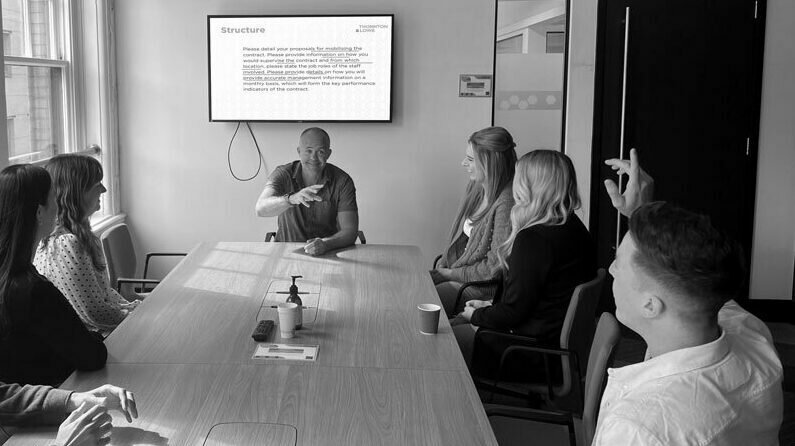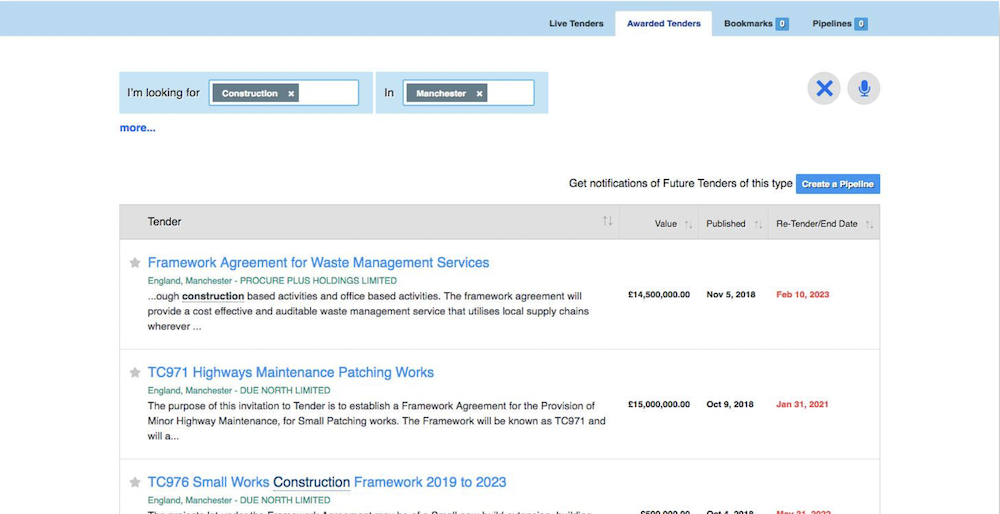Tender Ready: Prepare for Success in Tendering
Is your business tender ready? Are you looking to find, bid and win formal tenders? Being tender ready involves:
- Understanding if there are tenders available for your products and services.
- Identifying who is advertising these tenders, alongside their requirements and pain points.
- Collating what they require bidders to have in place in order to be successful.
- Analysing who is winning these tenders now and comparing your business.
If you can find example tenders, believe you can really compete and better meet the needs of certain buyers, and have the mandatory requirements in place - my goodness, you are tender ready!
Let's look at each one of these points in detail.

Are Tenders Available for your Products and Services?
Part of being "Tender Ready" means understanding whether there are tenders available for your specific products and services. It's essential to research and identify opportunities that align with what your business offers. Many industries regularly publish tenders, from construction and IT services to healthcare and environmental projects. Checking online tender portals, industry publications, and government websites can help you find relevant opportunities. Tender Pipeline is our free tool just for this purpose.
Knowing the market demand for your products and services allows you to focus your efforts on bids where you have the best chance of success. It also helps you stay ahead of competitors by identifying new and emerging opportunities. By regularly monitoring tender announcements, you can ensure that your business is always ready to respond to suitable bids, enhancing your chances of winning contracts and growing your business.
Who is Advertising these Tenders?
Identifying who is advertising these tenders allows you to further your research into what they require and the type of suppliers they work with.

Need help getting tender ready or to bid for a contract?
Contact usBuyers Requirements and Challenges?
To be truly "Tender Ready," you must understand the requirements and challenges faced by buyers. Buyers typically look for suppliers who can meet their specific needs and deliver high-quality results within budget and on time. Key requirements often include proof of previous experience, financial stability, relevant certifications, and detailed project plans.
"If I can't win a tender I can't get experience..."
A good point and a common challenge for businesses when they start looking for tender opportunities. However, there are routes such as bidding for lower value contracts which may be agreed less formally, traditional sales and marketing, subcontracting and joint ventures. Also, frameworks and DPS can be a more accessible route to start building trust and building a reputation with the public sector, for example. Our guide into selling into the public sector provides further insight on this.
Buyer Challenges and Requirements
Challenges buyers face can include ensuring compliance with procurement regulations, managing tight deadlines, and mitigating risks associated with supplier performance. Understanding these challenges can help you tailor your bids to address buyer concerns and demonstrate how you can provide reliable solutions.

Mandatory Tender Requirements
By looking for live tenders in your industry you can review the details and requirements of these tenders to understand what buyers are looking for. This can help you create a plan to become tender ready!
Key Areas to Focus On:
- Certifications and Accreditations: Many tenders require specific certifications or accreditations as a prerequisite. For example, ISO certifications for quality management, environmental management, and health and safety are commonly requested. If you lack these, consider starting the certification process to meet these essential standards. It is important to note that the government is actively looking to include more small and medium businesses in their supply chain, so ISOs are not always a requirement.
- Financial Stability: Buyers often require evidence of financial stability to ensure you can handle the project without risk. This may include providing your accounts or providing a credit rating such as D&B.
- Relevant Experience and References: Demonstrating past success in similar projects is important. Buyers look for detailed case studies, client testimonials, and references to assess your capability.
- Policies: Essential policies to become tender ready range from health and safety, to quality management, environmental and social value.
- Technical Expertise: Tenders often specify the need for particular technical skills or expertise. Assess your current capabilities and identify any gaps. Investing in training or hiring qualified personnel can help you meet these technical requirements.

Competitor Analysis - From Tender Ready to Tender Win!
You now have a really good idea of what you need to have in place to be tender ready. However, technically being able to bid is good, but if you do not consider your competition it's a bit of a wasted exercise!
Competitor analysis will let you understand if you can compete. What can you do for certain buyers, which they can't? You know what contracting authorities in your sector want now, so how can you use your differences as a strength? You need to be able to understand if you can compete.
This can often be difficult for businesses who are successful, for example in the private sector, but have to change their approach in order to win and compete for public sector contracts. At Thornton & Lowe we specialise in public sector tendering and provide a professional bid writing service to our clients across UK.
Looking for advice?
Speak a tendering expert todayDeveloping a Tender Readiness Plan
By reviewing live tenders and their requirements and understanding your likely competing bidders, you can create a comprehensive tender readiness plan. This plan should include:
- Gap Analysis: Identify areas where your current capabilities fall short of the tender requirements.
- Action Steps: Outline specific actions to address each gap, such as obtaining certifications, updating financial documents, or enhancing technical skills.
- Timeline: Establish a realistic timeline for completing these actions, ensuring you are prepared well before the next relevant tender opportunity arises.
Tendering and Continuous Improvement
Becoming tender ready is not a one-time effort but a continuous process of improvement. Regularly review new tenders, update your readiness plan, and adjust your strategies as needed. This proactive approach will ensure that when the right tender comes along, you are fully prepared to submit a competitive and compliant bid.
By focusing on mandatory tender requirements and systematically addressing any gaps, you can significantly improve your chances of winning contracts and growing your business. At Thornton & Lowe, we can assist you in becoming tender ready, providing expert advice and support throughout the tender process.




